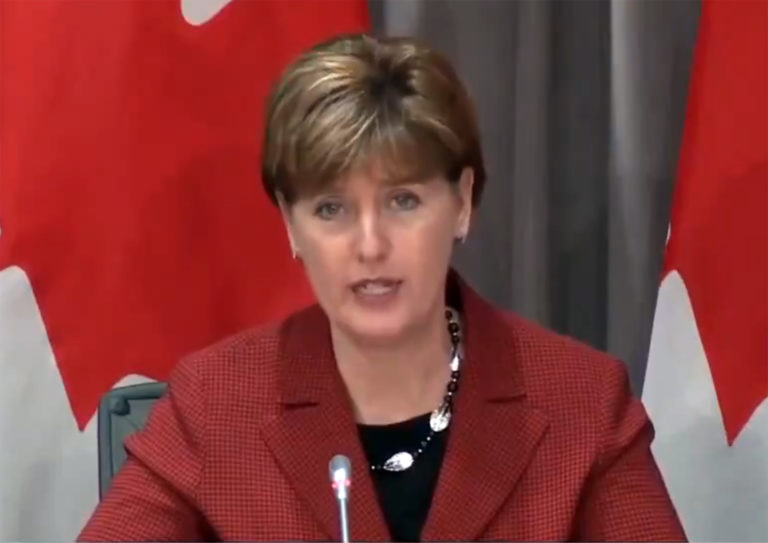
The federal government introduced a $50 million aid package for Canadian farmers, fish harvesters and food processing and production employers on Monday.
The majority of those funds will go towards helping business owners and their employees follow the mandatory 14-day isolation period required of all workers arriving from abroad. Employers will receive $1,500 for each temporary foreign worker they bring in to ensure they can pay wages and providing accommodations for workers who won’t be on the job for at least two weeks.
Marie-Claude Bibeau, Canada’s agriculture and agri-food minister, said employers were already struggling to find enough workers before the COVID-19 pandemic hit. With isolation measures in place, filling those jobs will be even harder, she argued, and this financial aid package can help address those challenges.
“In certain regions in the country, we know that temporary foreign workers are essential in our farms, (and) in our food processing plants,” Bibeau said during Monday’s announcement. “Obviously, this year they will have to comply with a strict 14-day isolation period, so to help our farmers and employers, we will give $1,500 per foreign worker to make sure they have the capacity to put in place all the measures necessary for this isolation period.”
The Canadian Federation of Agriculture, which represents more than 200,000 farming families, welcomed the news, calling it “a good start.”
CFA president Mary Robinson said these are uncertain times for food producers due to the “extraordinary costs” associated with isolating foreign workers for 14 days. She added that the government’s investment of $1,500 per worker will help ensure Canada continues to have a stable food supply.
“(It’s) great to see meaningful assistance for producers, who we all will be counting on even more this year to provide us food in these uncertain times,” she wrote on her personal Twitter account.
The federal Conservatives blasted the decision, saying producers should hire Canadian workers to fill those open positions. Pierre Poilievre, the party’s finance critic, said Canadians should be informed every time a nearby employer applies for a temporary foreign worker, and should be given priority during hiring.
“Canadians should have a first crack at every single job before it goes to a temporary foreign worker in these extraordinary times,” Poilievre said during a press conference in Ottawa. “Look, if Canadians can’t fill the work (requirements, and) they are not available to do the job that the employer is seeking, then that’s fine. The farmer or the business person does need to fill it with a temporary foreign worker, but the first crack should always go to a Canadian worker.”
Poilievre also criticized the federal government for not doing more to help small business owners forced to shut down due to the COVID-10 pandemic. He said businesses are being forced to wait too long for wage subsidies, while having their revenues fall to almost zero.
An estimated 50,000 to 60,000 temporary foreign agricultural, food and fish processing workers enter Canada each year for employment. They account for more than 60 per cent of all foreign workers entering the country. The federal government says that despite this, the industry still faces a shortage of around 15,000 employees every year.
Temporary foreign workers with COVID-19 symptoms will not be allowed to board international flights to Canada.
The federal government previously barred employers from bringing in any temporary foreign workers under strict COVID-19 measures introduced in March. They reversed that decision for the agriculture and agri-food sector on March 20.
